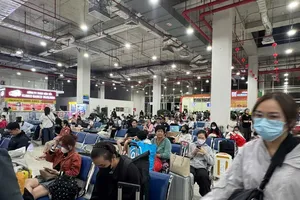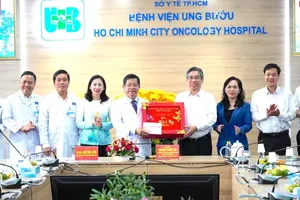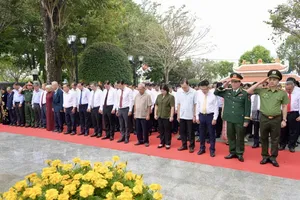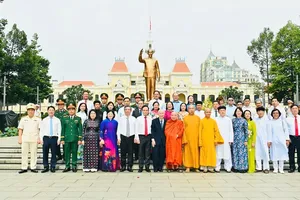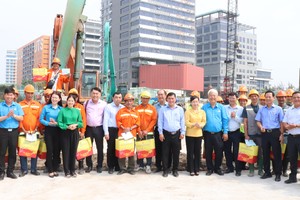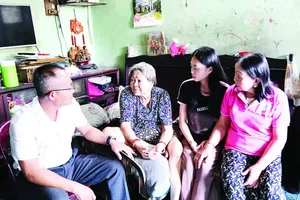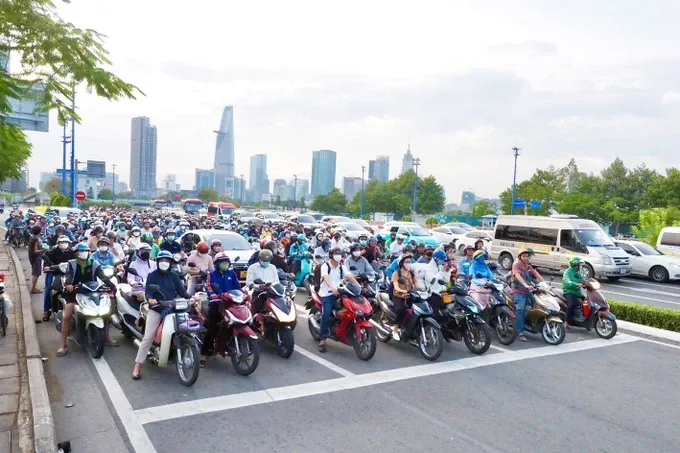
Deputy Head Nguyen Thanh Loi of the HCMC Traffic Safety Committee acknowledged public inconvenience and difficulties experienced by commuters, particularly since the beginning of 2025. He urged citizens to exercise patience and proactive planning, adapting their behaviour and habits to ensure stricter adherence to traffic laws, reflecting current reality and the trajectory of urban development..
The Deputy Head emphasized that previously tolerated practices such as disregarding traffic signals, driving on pavements, and indiscriminate parking, while offering perceived individual convenience, compromise overall traffic safety and public order, and are no longer acceptable. He called for road users to demonstrate responsible and considerate behaviour, fostering a culture of safe commuting.
The Traffic Safety Committee has called upon relevant authorities to urgently devise feasible solutions for existing shortcomings and limitations, implementing immediate measures to alleviate commuter difficulties.
Law enforcement forces are expected to articulate clear principles and rationale when addressing violations of public concern, thereby addressing public inquiries and fostering greater confidence among road users.
Results of recent surveys conducted by the HCMC Traffic Safety Committee reveal heightened traffic density, particularly during peak hours, on narrower roads. The concentration of vehicles on roads leads to extended waiting times, with increasing driver caution contributing to slower traffic flow and subsequent congestion.
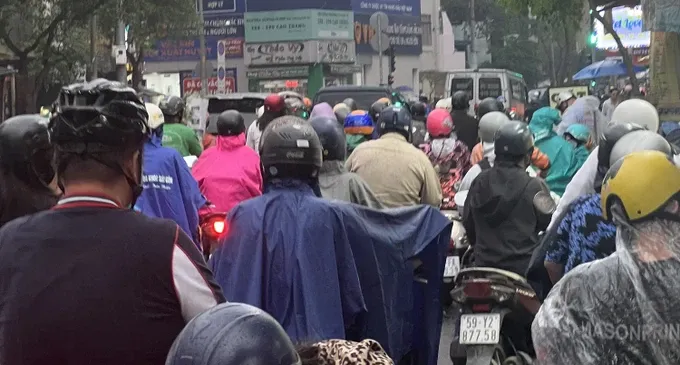
This is compounded by increasing year-end travel demand and numerous city events necessitating localized traffic diversions. Furthermore, operational issues and suboptimal timing of traffic signals at certain intersections contribute to the problem.
With the transfer of traffic signal system management from the municipal Department of Transport to the HCMC Public Security Department at the start of 2025, transitional challenges have emerged.
The Traffic Safety Committee has recommended that relevant agencies conduct surveys and install additional right-turn signals and supplementary signage for left and right turns, while also deploying more personnel to manage traffic flow in congested areas.
The Committee has further requested the HCMC Department of Transport to address severe issues related to traffic management and signal timing, implementing dedicated right-turn lanes or establishing specific criteria for broader implementation across the city.
Deputy Director Nguyen Dinh Duong of the HCMC Public Security Department informed of a 24-percent year-on-year reduction in traffic accidents and a decrease in other violations following the implementation of Decree 168. The increased level of penalties stipulated by the Decree have had a profound impact on public awareness and significantly improved road user behaviour. He stressed that the objective is not to augment state revenue through fines, but to cultivate a stronger culture of compliance with road traffic laws.
The Deputy Director emphasized a marked decline in red-light running, pavement driving, and contraflow traffic, particularly in the downtown of the city. Road users are demonstrating greater voluntary compliance with traffic signals, even in the absence of visible police presence, indicating a positive shift in public awareness and individual responsibility, contributing to a more civilized urban traffic culture.
According to the Ho Chi Minh City Traffic Police Division, in the initial two weeks of Decree 168’s implementation (January 1-14), over 23,924 violations were recorded, resulting in the temporary seizure of over 8,898 vehicles, the revocation of 3,958 driving licenses, and the deduction of points from over 310 licenses.
Total fines exceeded VND87 billion (US$3.4 million). The most common violations included driving under the influence of alcohol (7,448 cases), contraflow traffic (390 cases), speeding (22,664 cases), entering restricted roads (over 210 cases), disobeying traffic signals (nearly 500 cases), and illegal parking (1,766 cases).
